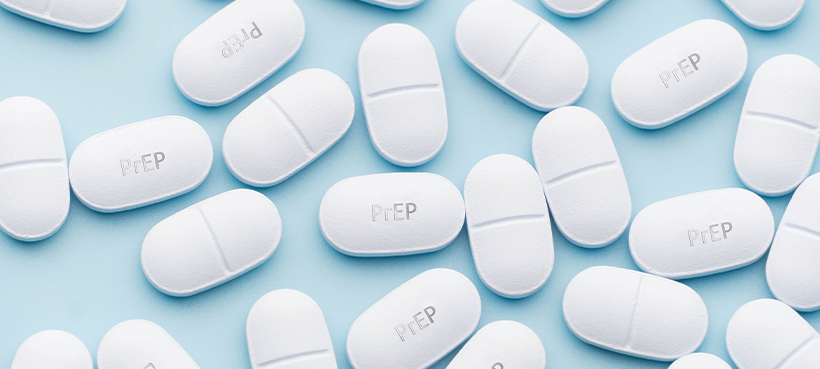
Breaking Down Barriers: Expanding Access to PrEP Across the UK
At The Eddystone Trust, we know PrEP is one of the most powerful tools we have to end new HIV transmissions. It’s safe, effective, and life-changing - yet many people across the UK are still struggling to access it when they need it most.
A recent survey of sexual health services shows just how far we’ve come, and how much more needs to be done if we’re going to achieve our shared goal of zero HIV transmissions by 2030.
Making PrEP Easier to Access
At the moment, PrEP is still mainly provided in specialist sexual health clinics. That works for some, but not for everyone. If you don’t live near a clinic, face cultural stigma, or simply don’t feel comfortable in those spaces, PrEP can feel out of reach.
Services and commissioners are recommending that PrEP be made available in a much wider range of settings - from GP surgeries and pharmacies to community outreach venues and online platforms. This would mean people could access PrEP in a way that actually works for their lives.
Building Capacity Through Training
PrEP has a strong safety profile, with very few side effects or drug interactions. Yet in many places, only doctors can prescribe it. That limits capacity and creates bottlenecks.
By training nurses, health advisers, pharmacists, and even non-registered staff, services can expand who is able to safely provide PrEP. Some areas are already leading the way - a London pilot released almost 100 hours of senior prescribers’ time in just six months by training health advisers to dispense PrEP.
This is about making the most of the skills we already have in the system, so more people can access PrEP quickly and easily.
Tackling Inequalities in PrEP Uptake
Right now, the majority of PrEP users are gay and bisexual men. But the survey revealed some striking gaps:
-
Only 1% of PrEP users are cisgender women, even though HIV diagnoses among heterosexual women continue to rise.
-
Only 2% of PrEP users are transgender people, despite evidence of need in the community.
We know that lack of awareness, stigma, and cultural barriers all play a part. That’s why targeted campaigns in places like antenatal clinics, GP practices, and community groups are so important - because HIV prevention isn’t just for one group, it’s for everyone.
Time is Critical
Guidelines recommend access to PrEP within 48 hours. But the reality is that only 40% of services can meet that standard.
For people moving from PEP (post-exposure prophylaxis) to PrEP, delays are common too. That means missed opportunities to protect people who are at ongoing risk of HIV.
If we’re serious about HIV prevention, these waiting times need urgent attention.
Innovation Leading the Way
Thankfully, many services aren’t waiting around. Across the UK, we’re seeing innovative approaches:
-
Brighton developed a digital app-based pathway, freeing up 1,000 clinic appointments a year while supporting outreach to marginalised groups.
-
London upskilled non-registered staff to dispense PrEP, boosting both morale and service capacity.
-
Manchester partnered with GP practices, making PrEP accessible in primary care. Over a third of people accessing PrEP this way had never attended a sexual health clinic before.
- Cornwall is about to launch a new PrEP online service making it easier than ever to access PrEP if you live in Cornwall.
These examples show what’s possible when services think differently and put people at the heart of HIV prevention.
What Needs to Happen Next
To achieve zero new HIV transmissions by 2030, the survey makes it clear:
-
PrEP needs to move beyond clinics and into community spaces, pharmacies, and GP surgeries.
-
Staff across all levels need training and support to safely provide PrEP.
-
Equity must be at the centre - especially for women, trans people, and communities not traditionally reached by sexual health clinics.
-
Funding and resources must match the ambition, so access within 48 hours becomes the norm, not the exception.
Final Word
PrEP works. But it only works if people can get it.
At The Eddystone Trust, we’re committed to making sure HIV prevention is available to everyone - no matter where they live, how they identify, or which services they use. By breaking down barriers and pushing for innovation, we can make PrEP equitable, accessible, and universal.
Together, we can end new HIV transmissions by 2030. To find out more about PrEP then visit our webpage here and if you'd like to read the Mapping the Provision of HIV
Pre Exposure Prophylaxis in the UK: 2025 report in full then click here
